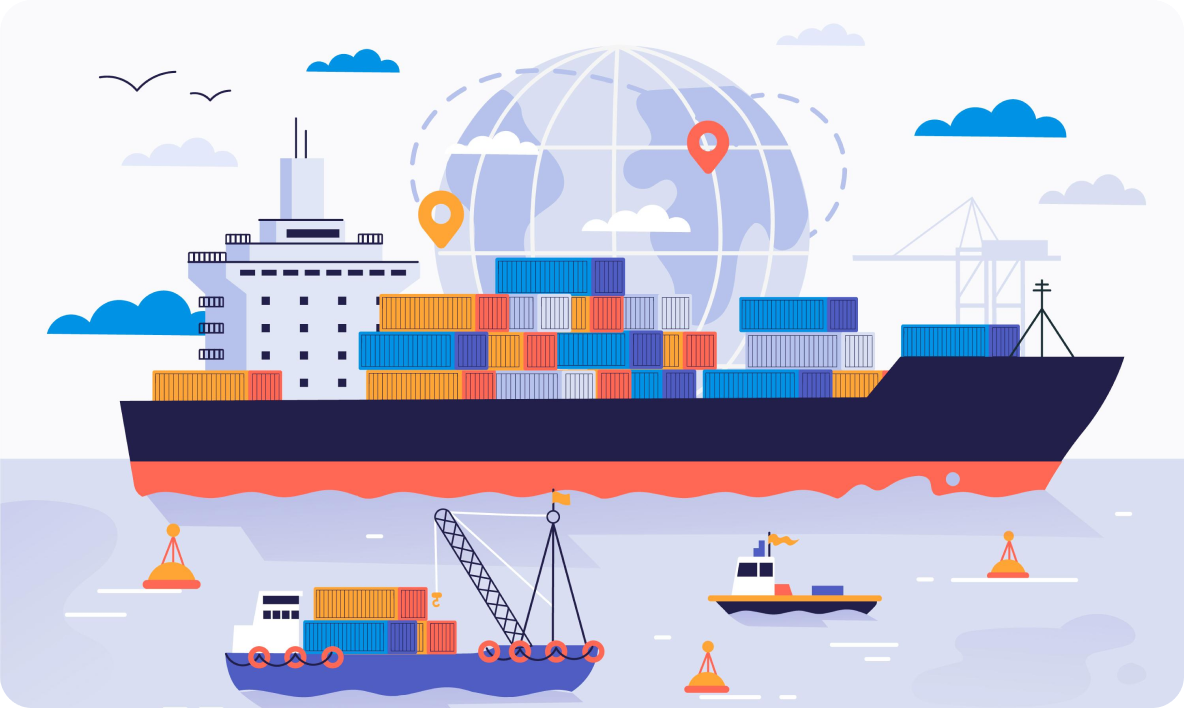If you are an online seller or e-commerce business owner, you may be aware of the new EU VAT rules that took effect on 1st July 2021. The rules are part of the EU's effort to modernize VAT rules for cross-border e-commerce, making it easier for businesses to sell goods and services across the EU. One of the significant changes is the introduction of the Import One-Stop Shop (IOSS).
By using the VAT OSS, businesses can avoid passing on the cost of VAT to customers, making their products more attractive to EU consumers.
What is OSS?
OSS is a new electronic system that allows businesses to declare and pay VAT on their cross-border sales of goods and services to customers in the EU. The OSS scheme is designed to simplify VAT compliance for businesses and reduce the administrative burden of managing VAT obligations in multiple EU member states.
With the OSS, businesses can:
- Declare and pay VAT in a single member state: Businesses that are registered for the OSS scheme can declare and pay the VAT due on their cross-border sales in a single member state rather than registering for VAT in every member state where they have customers.
- Simplify VAT compliance: The OSS simplifies the VAT compliance process for businesses by allowing them to manage their VAT obligations in one place.
- Reduce VAT costs: By using the OSS, businesses can reduce their VAT costs by avoiding the need to register for VAT in multiple member states.
Who can use OSS?
The OSS is available to businesses that are registered for VAT in the EU and make cross-border sales of goods and services to customers in the EU. The scheme applies to businesses that sell to consumers and other businesses that are not registered for VAT in the member state where the sale is made. Businesses that are not established in the EU can also use the OSS if they appoint a tax representative in the EU to act on their behalf.
How does OSS work?
To use the OSS, businesses need to register with the tax authorities of an EU member state where they are established or have a fixed establishment. Once registered, businesses are assigned a unique OSS identification number, which they need to provide to their online marketplace or platform.
When a sale is made to an EU customer, the seller collects the VAT due on the sale and includes it in the price paid by the customer. The seller then reports the VAT collected in a quarterly VAT return to the tax authorities in the member state where they are registered for the VAT OSS. The tax authorities will distribute the VAT collected to the relevant member states based on the customer's location.
What are the benefits of using OSS?
The OSS provides a range of benefits for online sellers and e-commerce businesses.
Some of the benefits include:
- Easier VAT compliance: The OSS simplifies the VAT compliance process by allowing sellers to declare and pay VAT in one EU member state, rather than registering for VAT in multiple member states.
- Improved customer experience: With the OSS, customers no longer have to pay VAT at the time of import, making the buying process smoother and more efficient.
- Reduced customs delays: As VAT is declared and paid at the time of sale, customs delays can be reduced, allowing goods to be delivered to customers more quickly.
- Competitive advantage: By using the OSS, businesses can avoid passing on the cost of VAT to customers, making their products more attractive to EU consumers.
- Reduced VAT costs: For businesses that regularly make cross-border sales to customers in the EU, the OSS can help reduce VAT costs, as it eliminates the need to register for VAT in multiple member states.
Conclusion
The OSS is a significant development in the EU's VAT rules for cross-border e-commerce. The scheme provides businesses with a simplified way to manage their VAT obligations when selling goods and services across the EU.
With the OSS, businesses can reduce administrative costs and improve the customer experience, making it easier for businesses to trade across the EU.
While there may be some challenges to overcome in implementing and using the OSS, overall, it is a positive step towards simplifying VAT compliance for businesses and promoting cross-border trade in the EU. Therefore, businesses need to understand the requirements of the OSS and consider its use as a means of reducing VAT costs and improving their competitiveness in the EU marketplace.
